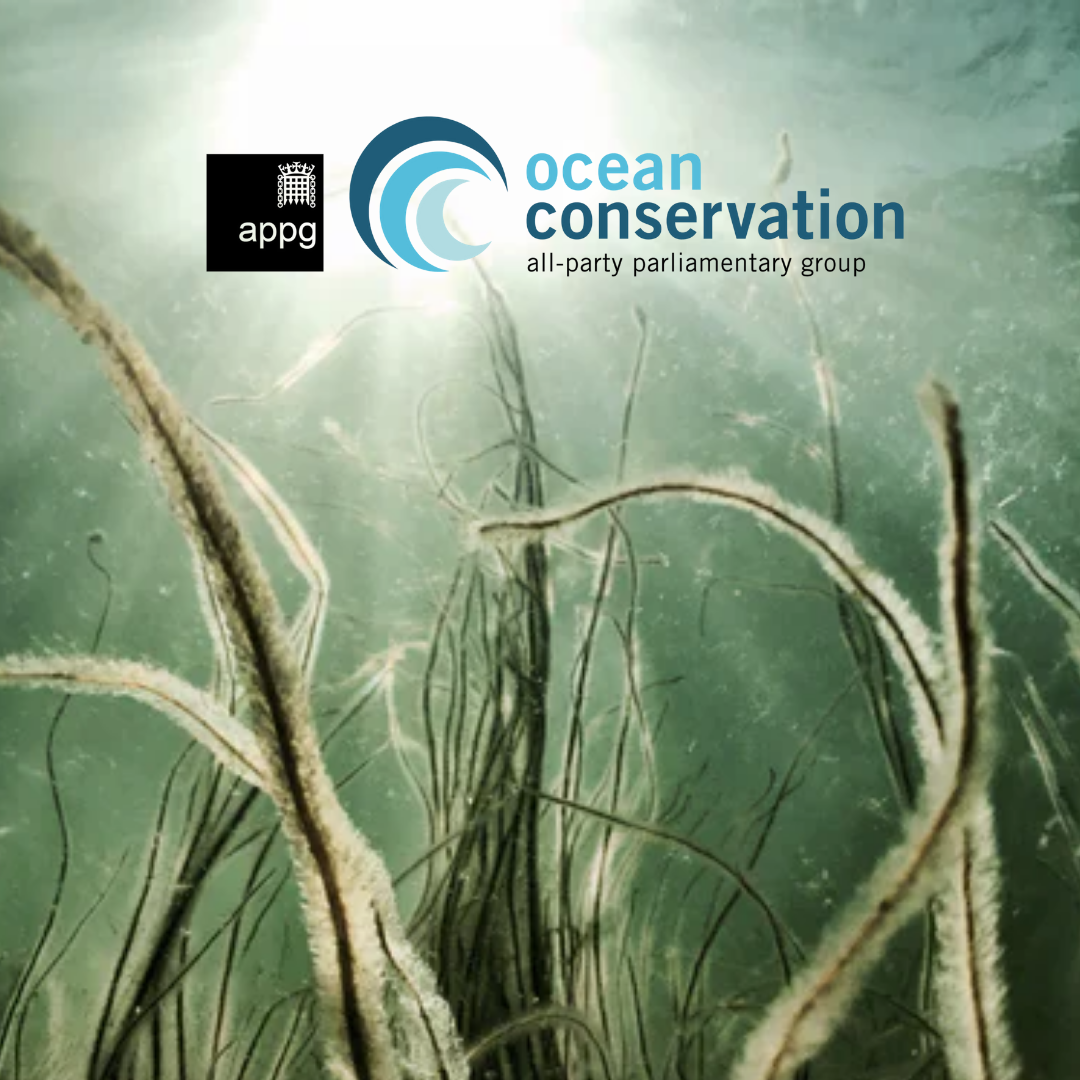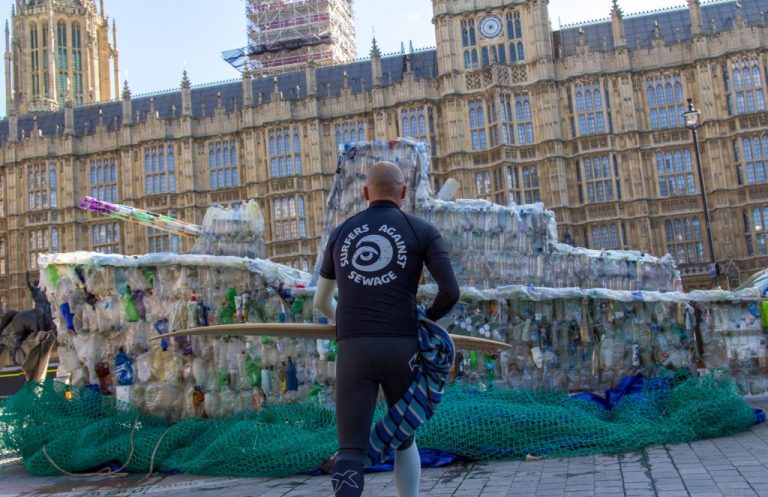
MPs Come Together to Support Ocean Recovery that Works for People and the Planet

MPs from across the political spectrum came together today with marine experts from Surfers Against Sewage, Cornwall Wildlife Trust, the World Wildlife Fund, and the Marine Conservation Society for the Ocean Conservation All-Party Parliamentary Group’s first ever digital meeting. Central to the discussion was the opportunity for ocean recovery as we emerge from the health crisis that restores the ocean in ways that also provide social and economic benefits for communities living near and far from the ocean.
The UK seas contain some of the richest and most diverse sea life in the world, including over 8,000 species of fish and invertebrates[1].
However, human impacts on the ocean mean that this is just a shadow of the biodiversity which the seas around the UK used to hold. Pollution, climate change, overfishing and poor ocean management have hit marine life hard and we have seen the rapid decline of ocean habitats and the marine wildlife they support.
The struggling ocean also has profound effects for the people and communities reliant on the ocean for their livelihoods as well as their health and wellbeing. With falling fish stocks[2], the pollution of bathing waters[3]
and rising sea levels all posing serious challenges for coastal communities.
At this crucial time for the ocean, the Ocean Conservation APPG discussed the potential for healthy marine habitats such as kelp forests and seagrass meadows to store blue carbon. The need for Highly Protected Marine Areas to be established in UK waters in order to ensure these ecosystems can mature into an effective weapon to tackle climate change was also highlighted as an urgent priority. The opportunities for fishing communities presented by ocean recovery was raised, with NGOs and the government needing to collaborate so these benefits are realised to ensure a sustainable UK fishing industry. Community engagement in marine restoration projects are seen by the group as central to ensure a sustainable ocean recovery that works for people and the blue planet.

With key decisions on the Environment Bill, Fisheries Bill and Comprehensive Spending Review to be taken by parliament this autumn, the Ocean Conservation All-Party Parliamentary Group will look at actions it’s members can take and progressive measures that can be championed to further boost ocean recovery over the coming months and in the build up to COP26.
Steve Double MP for St Austell and Newquay, Chair of the Ocean Conservation APPG said,
‘The health of the ocean is intrinsically linked with the health of the UKs society and economy. I see this acutely in my own constituency of St Austell and Newquay where the ocean provides the livelihoods for our fishermen, draws visitors who support our toursist industry and provides a playground for surfers and beachgoers. As we recover from the health crisis and prepare for a life outside of the European Union it is therefore crucial that we help restore both the ocean and our communities. The Ocean Conservation APPG will continue to be the voice of the ocean in parliament ensuring that we seize the opportunities to deliver ocean and community recovery in the coming months and years.’
Hugo Tagholm, CEO of Surfers Against Sewage said,
‘The ocean is one of nature’s most resilient ecosystems however human exploitation and mismanagement of the ocean means we are currently on the brink of losing many of our most precious marine habitats and species. The ocean however has an amazing ability to recover itself if we create the right conditions for it to do so. It was great to hear today from politicians across the political spectrum as well as experts delivering on the ground ocean recovery projects about ways communities, politicians and NGOs can work together to deliver ocean recovery.
I look forward to working together further as we build towards COP26 to ensure that the UK takes the lead in establishing the right conditions for ocean recovery through the creation of Highly Protected Marine Areas and the rewilding of our seas.’
Ruth Williams, Marine Conservation Manager, Cornwall Wildlife Trust said,
‘Fishing is a major threat to our oceans. Thousands of dolphins, seabirds, seals and other marine life die each year from entanglement in fishing gear, seabed habitats are destroyed and many stocks are still over fished despite scientific advice. To achieve ocean recovery, we need to be proactive. We have a unique opportunity right now to create a strong Fisheries Bill with strong sustainability principles and accountability. Recovery has huge benefits not just for our wildlife, but for the sustainable futures for our business, industry and us as human beings.’
Chris Tuckett, Chair of the Wildlife and Countryside Link Marine and Whales Groups Manifesto added,
‘The ocean is the lifeblood of our planet, providing over half of the air we breathe, capturing 30% of CO2 and 90% of man-made heat, and providing a home to many iconic marine species. Yet, it is at risk of suffocating from climate change, pollution, over-fishing and a lack of protection. Government are stepping up their international ambitions for ocean protection but to stand up on the world stage they must first deliver at home.
To achieve this, the Wildlife and Countryside Link Marine and Whales Groups are calling for a radical ocean recovery agenda, which is set out in in our Ocean Recovery Manifesto, to recover our oceans by 2030 to protect people and nature and climate.
[1] R. Benyon, P. Barham, J. Edwards, M. Kaiser, S.Owens, N. Rozariuex, C. Roberts, B. Sykes, (2020) Benyon Review into Highly Protected Marine Areas. Available at: https://assets.publishing.service.gov.uk/government/uploads/system/uploads/attachment_data/file/890484/hpma-review-final-report.pdf
[2] https://www.theguardian.com/environment/2019/feb/28/fish-stocks-continuing-to-fall-as-oceans-warm-study-finds
